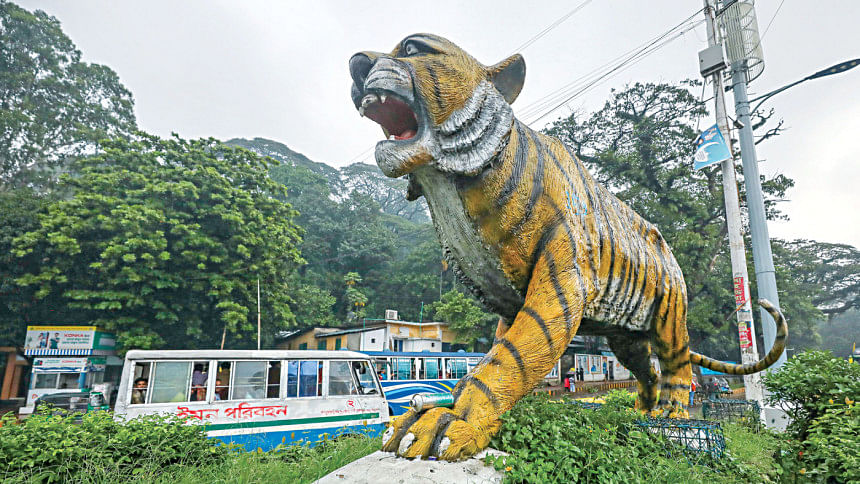Where tigers roamed free

"I grew up listening to my grandfather's stories of how tigers ascended down these hills. He even saw one himself while one of his friends even tried to hunt one once using a trap, but failed. It was their reality, but for us and our following generations, it's only a myth," said 80-year-old Saleh Ahmed sipping tea at a small stall in the port city's Tiger Pass area.
Chattogram city used to be a small settlement, stretching only 16 square km during the 1950s, with tigers roaming around the hills and hunting. Humans had to put up a tough fight to survive as they often preyed on their cattle, said Prof Abdul Mannan, former chairman of University Grants Commission and ex-vice chancellor of Chittagong University.
"I started schooling in this town in 1953 and have grown up listening to stories that sing of the 'glorious' tiger hunters," he added.
Once a wildlife sanctuary guarded by hills and hillocks, Tiger Pass, located in the central town, is now a busy intersection, connecting four roads. These roads were established at the cost of these wild animals to develop the city's connectivity.

Many other such city areas, like Leopard Pass and Baagh Ghona (Tigers' Haven), were named after the tigers that ruled over these areas.
Abdul Haque Chowdhury, in his book "Bandar Shahar Chattogram", mentioned of the tigers and how they were hunted down by humans using traps and guns, said Prof Anupam Sen, vice chancellor of Premier University Chittagong.
"This place was named after the tigers as they would make frequent visits while crossing between the two big hills in the area that glided towards the sea, even during the 1900s," said Prof Sen who has spent his childhood in the city.
The roars could even be heard during the day time, said the social-scientist, referring to Arthur Lloyd Clay's book "Leaves from a Diary in Lower Bengal".
"The government used to reward tiger hunters back then. In fact, two tigers were brought in for rewards within a week of Clay's posting in the district in 1862. These books carry evidence of the silent war between humans and the tigers, and how the four-legged legends had to bow before the guns before leaving this place for good," he added.

 For all latest news, follow The Daily Star's Google News channel.
For all latest news, follow The Daily Star's Google News channel. 



Comments